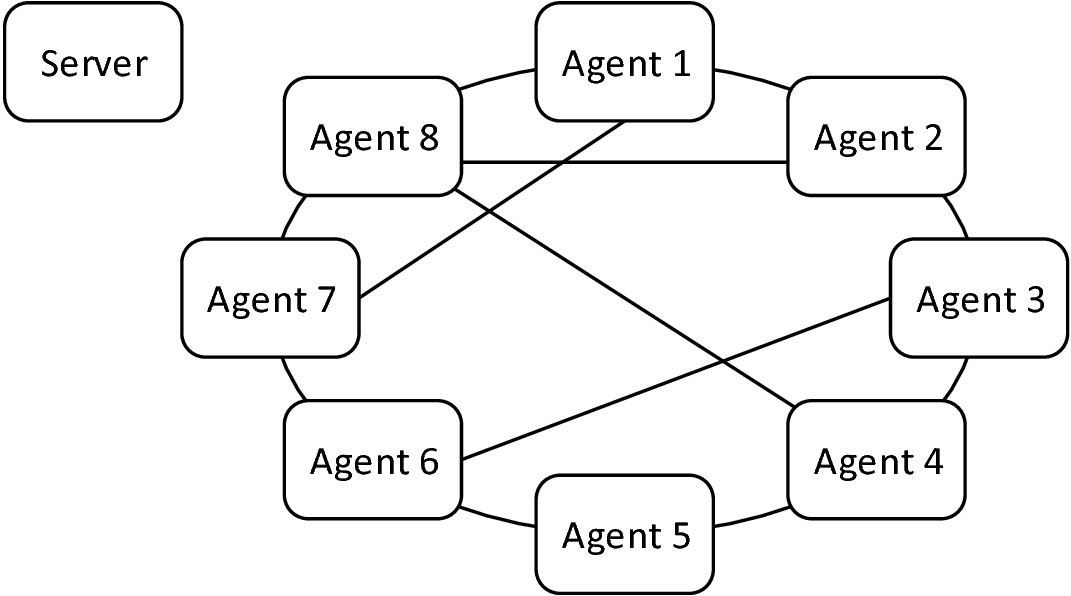COHDA
Hinrichs, Christian, Sebastian Lehnhoff, and Michael Sonnenschein. “COHDA: A Combinatorial Optimization Heuristic for Distributed Agents.” In Agents and Artificial Intelligence, edited by Joaquim Filipe and Ana Fred, 23–39. Communications in Computer and Information Science 449. Springer Berlin Heidelberg, 2013. http://link.springer.com/chapter/10.1007/978-3-662-44440-5_2.
Combinatorial Optimization Heuristic for Distributed Agents (COHDA) resembles a multi agent system. Households are represented by an agent and connected through a small world overlay network. The optimisation heuristic pursues the global goal to adhere to the load target \( \mu \) by minimising \( \vert\omega-\mu\vert \).

COHDA proceeds as follows:
- The server \( s \) sends the adaption target \( \nu=\mu/\vert H \vert \) to a random household \( h \).
- Every household \( h \) maintains a knowledge base, consisting of the current configuration \( \sum_h \) (energy consumption of all households) of the system known to \( h \) and the best configuration \( \sum_h^* \).
- Upon receiving information from a neighbour, a household updates its knowledge base. The household now chooses a configuration of its own devices, which corresponds to its own goals and considers \( \sum_h \). If \( \sum_h^* \) cannot be improved according to \( \nu \), \( \sum_h^* \) is chosen and \( h \) determines the states of its devices.
- If \( h \) finds a better solution \( \sum’_h \), it publishes this new information. Thus, \( h \) updates \( \sum_h \) and \( \sum_h^* \) to \( \sum’_h \) and sends this data to its neighbours.